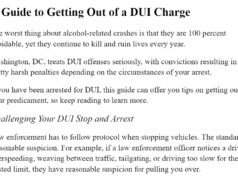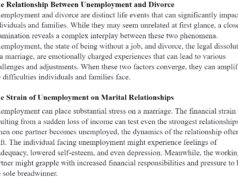SPONSORED CONTENT
Why Do Criminal Cases Take So Much Time in Arizona?
Criminal cases come with several questions, including what the process looks like and how much time it takes, among others. Criminal cases take a lot of time to resolve in Arizona, usually between four to six months. However, that depends on the specifics of the case and the severity of the charges.
For example, while low-level felony cases can take up to a year, major felony cases typically take longer. However, although Arizona’s legal system strives to give both plaintiffs and defendants their right to a fast trial, it is not always possible.
That is because the system must also ensure thorough and fair court proceedings, and these things take time. With that said, if you have a criminal case, here are three factors that can make it run longer than normal.
1. Pretrial Motion Schedule and Legal Procedures
The legal processes associated with criminal cases start with scheduling, of which courts might have limited resources or busy dockets. If the court has either of these two, then there will most likely be a delay. Furthermore, the limited number of judges, high caseloads, and courtroom availability can delay legal procedures, including pretrial motion scheduling.
In addition to that, before the trial starts properly, several pretrial motions and legal procedures must first take place. The legal processes include evidence discovery and the motion to suppress the evidence presented, among other arguments that can delay the case significantly. This gives you all the more reason to have a seasoned criminal lawyer in Arizona representing you.
2. Next Step – Evidence Obtaining
Criminal cases, among other court proceedings, are based on evidence, and getting sufficient evidence for criminal trials is time-consuming and rather challenging. The plaintiff has the burden of proof; the court requires them to provide real, documentary, testimonial, digital, and demonstrative evidence. Usually, they will obtain these pieces of evidence from witnesses, police officers, and other parties involved, which will delay the trials.
Meanwhile, let us briefly explain the different categories of evidence plaintiffs need to present:
- Real evidence – evidence collected from the crime scene like a knife, gun, or blood-stained clothes
- Documentary evidence – evidence that builds up from the events before the crime; it should be presented alongside real evidence
- Testimonial evidence – the simplest form of evidence, consisting of statements from eyewitnesses of the crime
- Digital evidence – evidence recovered from electronic or digital sources such as dash cams and CCTV, among others; and
- Demonstrative evidence – attorneys, as well as prosecutors, often use this piece of evidence to prove the case, consisting of animations, diagrams, and maps
3. Plea Bargains
The third factor that may extend a criminal case beyond normal is the plea bargain, which is preceded by negotiations. Oftentimes, criminal cases can be resolved through negotiations and plea bargains, but they differ from those done in personal injury cases. There will be negotiations in criminal cases if the defendant admits fault and agrees to plead guilty for a reduced sentence or charges.
“Plea bargains can be lengthy and time-consuming, requiring that defendants first accept the charges being leveled against them. Then, the office of the prosecutor will find an agreement the judge will accept, depending on the case’s nature,” says Attorney Ryan McPhie of Grand Canyon Law Group.
Conclusion
Criminal cases in Arizona can take between six months to over a year, depending on the specifics of the case. Several other factors can also affect how long the case takes to be resolved, including those mentioned above. Overall, some criminal cases can be quite complicated due to the presence of multiple defendants, a huge body of evidence, and legal issues.


 Sign up for the Blue Virginia breaking news newsletter
Sign up for the Blue Virginia breaking news newsletter









![Video: Speaking to a Packed, Fired-Up House at the Opening Night of the 2025 VA Women’s Summit, Sen. Tim Kaine Rips Youngkin – “If you won’t stand up for [UVA], will you stand up for ANYTHING?!?”](https://bluevirginia.us/wp-content/uploads/2025/06/kainewontstandup-100x75.jpg)

